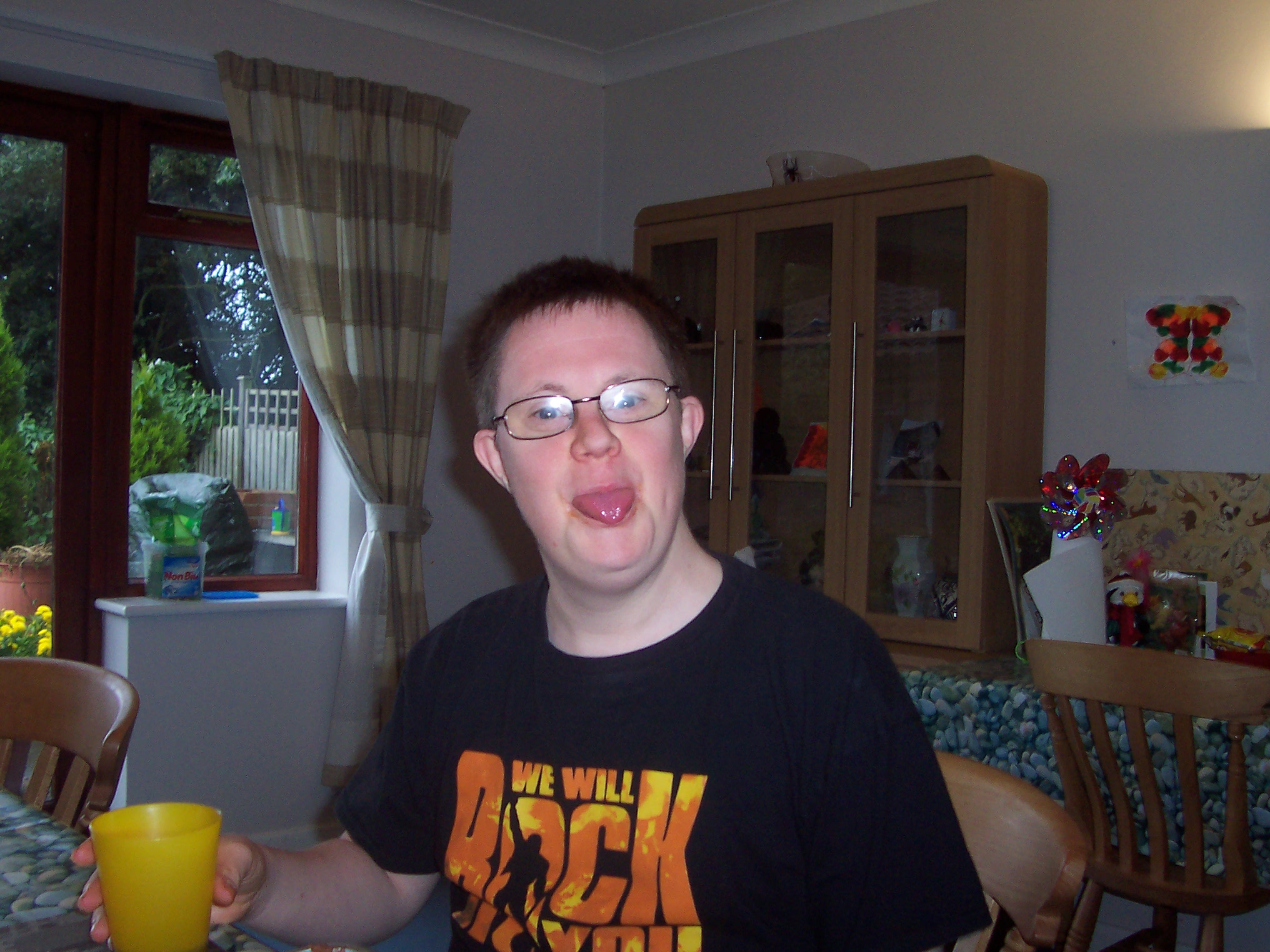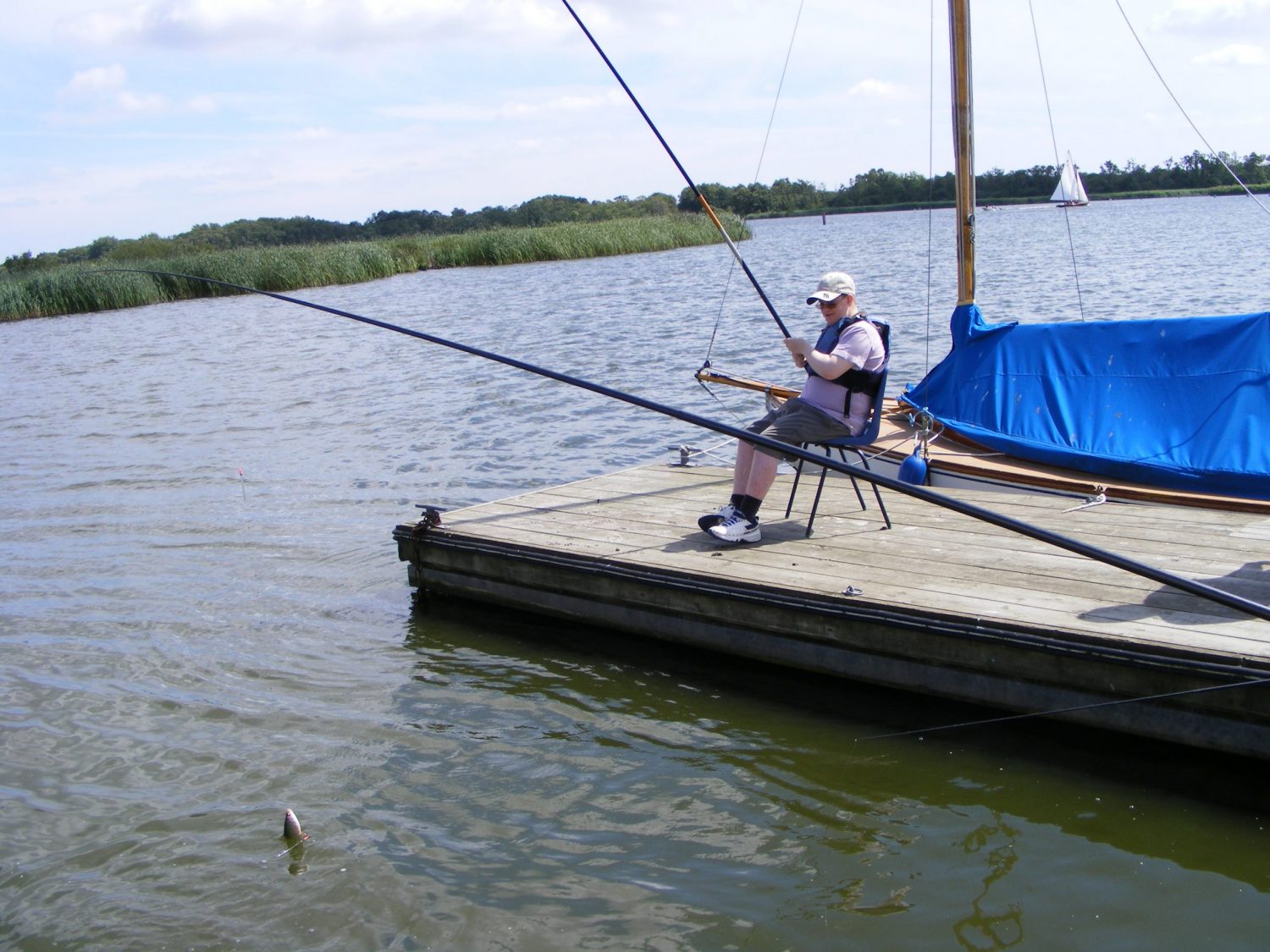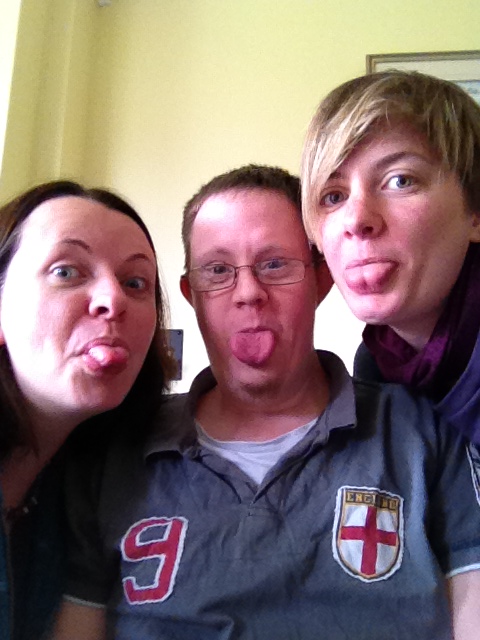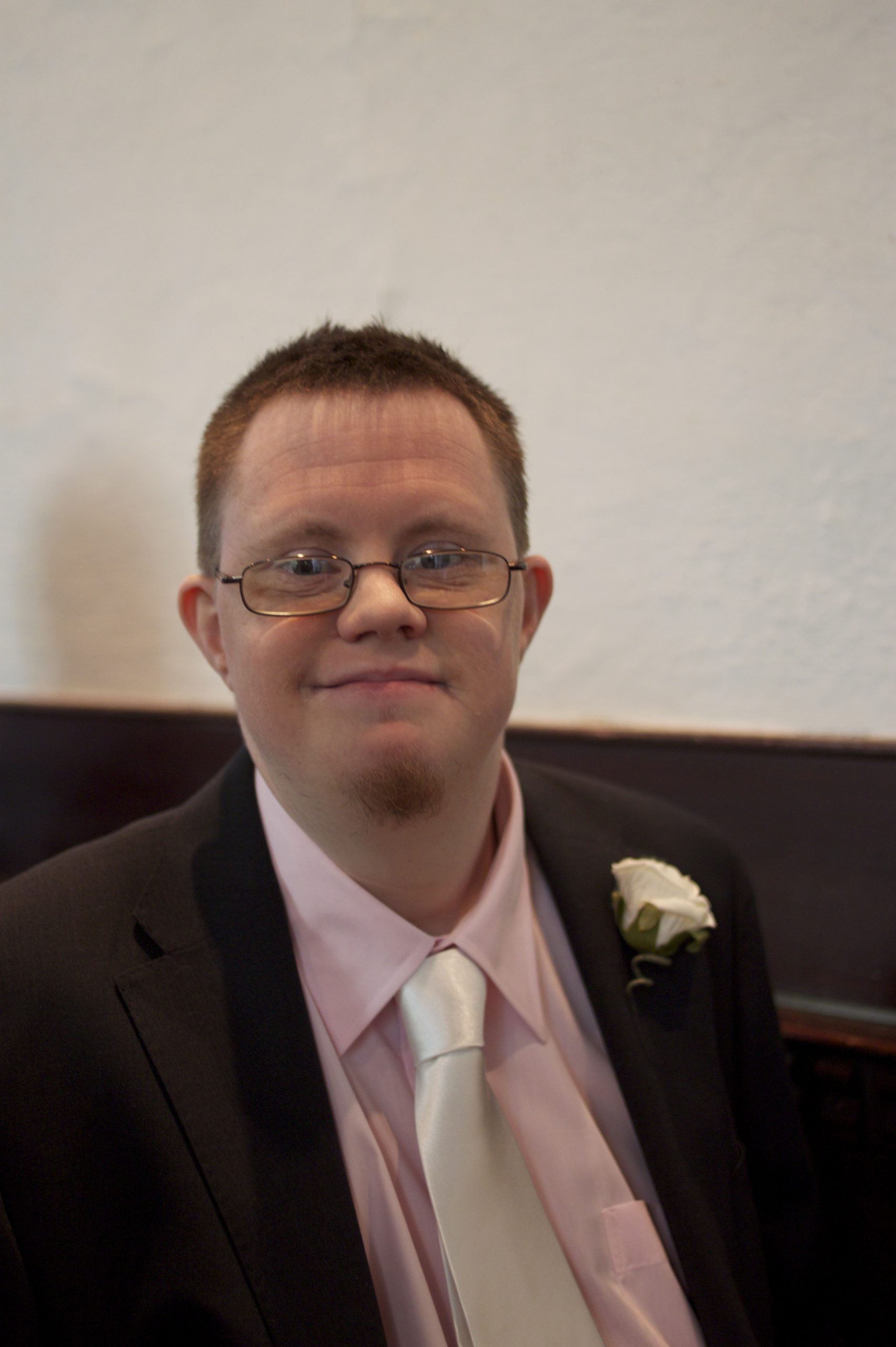Sheila Handley tells the story of the death of her 33-year-old son Richard, why it should never have happened and her fight for others in his memory
This is a journey… a journey through a life lived, a death that could have been prevented and the many lessons yet to be learned.
It all began when I was 28. Motherhood beckoned. Richard, my first child, was born, followed fairly closely by my two girls. Richard, who had Down’s syndrome, thoroughly enjoyed all the usual activities of family life. I have so many fond memories of his path through childhood. Constipation was the only stumbling block. From birth, he was diagnosed with probable Hirschsprung’s disease. His daily routine needed exercise, laxatives, a high-fibre diet, plenty of fluids and stretching games every evening to help him empty his bowels.
When he turned 18, the road became rockier. Richard suffered mental health problems. The friendly, cheerful side of his nature faded and he lost interest in things he had previously enjoyed. He was eventually diagnosed with a schizoaffective disorder. There were times when he was very withdrawn and he was sometimes aggressive. This was very worrying because he was suffering.
There followed a very bumpy period when Richard was in respite care. Regular manual evacuations were needed for constipation. He moved to an assessment and treatment unit (ATU) to have his needs monitored and assessed. The downside? it was about 30 miles from home. A comprehensive statement of health needs produced by the unit detailed the care needed to keep him safe and well and a residential placement was proposed. I was tortured by the anguish of Richard leaving home and by worry about handing his care to others. However, it seemed to be the only route. The accommodation was in a six-place, purpose-built bungalow, only five minutes from home. This was beyond my wildest dreams.
The road became smoother. Staff worked with us, learning from our 18 years’ experience and carefully following the constipation care needed. He had the right diet and exercise and bowel charts were kept. Practice and communication were good. The medication regimen kept him on an even keel most of the time. Richard began to enjoy life again.
In 2010, the care home changed to supported living. Richard signed a tenancy agreement despite having no proper understanding of what it meant. Families were reassured that, while changes would affect administrative and financial matters, care would remain the same. However, unbeknown to me, changes were made to his care; bowel charts ceased and bowel monitoring became haphazard. I raised concerns about aspects of the care and was told: “Richard has the same right as everyone else to make unwise choices.” 
Making unsafe choices
Richard quickly learned he could say “no” to a variety of things – cleaning teeth, bathing, cutting toenails, eating a high fibre diet, being monitored when pooing… The road had become a quagmire, making the journey unsafe. From Easter 2012, Richard slipped away. He withdrew from most activities and was very unwell. It was viewed entirely through the lens of mental health. The GP and psychiatrist did not consider a physical cause despite the known link between constipation and poor mental health and even though his medications had constipating side-effects.
In November 2012, the psychiatrist raised concerns about the hardness and distension of Richard’s abdomen. A trainee GP prescribed a concentrated dose of laxatives. Richard moved to an ATU to monitor his mental health. He was already on a collision course with disaster. He was taken immediately to A&E, admitted and, the next day, 10kg of faeces was removed from his bowel. However, his abdomen remained huge despite passing further vast quantities of faeces.
Junior doctors did not follow the protocol based on the MEWS score (an early warning scoring tool used to help clinicians identify deteriorating patients) derived from vital signs. Senior staff were not called; Richard did not receive the level of care needed. The interventions that could have saved his life were not provided. When the alarm call eventually went out, it was too late for Richard. He went into cardiac arrest and died. Yes, in 21st century Britain, a 33-year-old man died from constipation. He received poor care from every single agency involved and lost his life. His journey had ended. 
I shall never forget that moment when, in the early hours, standing in a hospital ward, I was told my son was dead. I couldn’t take it in. I wailed like a wounded animal. A nurse repeatedly told me that I had to “accept that Richard’s time had come”. What? From constipation? He had died. The calling of an inquest filled me with hope that the many questions surrounding Richard’s death would be answered. Five months later, a meeting was held to discuss the outcome of the hospital investigation, before an inquest being timetabled.
The investigation was limited and the conclusions and actions based on it weak. The apparent aim was to minimise the part the hospital played in Richard’s death. It did not answer our questions. Little did I realise but a whole new journey was beginning – a journey both arduous and draining. Comprehensive complaints were submitted to five agencies involved in Richard’s care. I naively thought we would sit with them, explore what went wrong, agree potential changes and so gain the comfort of knowing that others would not suffer as Richard did.
A serious case review (SCR) was initiated a year after Richard’s death. Complaints were put on hold. The SCR dragged slowly on, eventually reporting in October 2015, nearly three years after his death. There was no meaningful family involvement despite our overarching knowledge of events; agencies could cherry-pick from the information submitted. Fortunately, we successfully argued for a sight of the draft report and were able to push things that would not otherwise have surfaced.
Finally, in early 2018, a lengthy inquest was held. Surely the journey’s end was in sight? I listened to barristers and a QC crafting a case to show that the care given had not caused problems. It did not seem to matter that the SCR report and the complaint responses produced by the agencies had seemed to say otherwise.
The scope was wide but, despite the gross failings and missed opportunities, the final conclusion was not neglect; this was because it was not known what the outcome would have been had the failings not happened and opportunities not been missed.
I shall never understand this. If at least one agency had done a better job, Richard would not have ended up in hospital receiving care that fell below the level that the hospital chief executive expected his hospital to provide.
Action, not more research
So my own journey continues. I remain passionate about turning the so-called “lessons learned” from Richard’s death into actions that make death from poorly monitored and managed constipation a thing of the past.
Since May 2018, I’ve been able to campaign on a number of fronts:
● Telling “Richard’s Story” at eight conferences; several more are in the pipeline but are now on hold. The audiences are care providers, GPs, mental health nurses, carers, LeDeR (Learning Disability Mortality Review) programme managers and reviewers, social workers… I present a powerful story in the hope that those who hear will be galvanised into making change happen. It doesn’t need rocket science or more research; all the lessons are there. It just needs the will to turn them into action to prevent suffering and save lives
● Working with a small group of bereaved parents, guided and led by Noelle Blackman, chief executive of Respond (https://respond.org.uk) to produce resources for NHS England for LeDeR reviewers and families
● Being a member of an NHS England and RightCare Pathways working group to produce resources about constipation care for GPs and families
● Advising on the content of an easy-read My Poo record booklet to help people and their carers understand, monitor and manage bowels to avoid constipation.
Where has this journey taken me? I know Richard’s Story has reverberated across the land and that many have taken action to improve constipation care. Resources have been produced, people have received training and “poo” is far more widely spoken about.
I’ve been lucky to meet many wonderful people who are committed to bringing about change – people who genuinely care about the lives of people with a learning disability. However, the journey is not yet complete because premature deaths from poorly managed constipation still occur. A widely publicised recommendation from Richard’s SCR was for adults with a learning disability and complex needs to have a nam ed care coordinator to review health needs and ensure that information is shared between professionals and services.
ed care coordinator to review health needs and ensure that information is shared between professionals and services.
The coroner concluded that having someone to oversee and coordinate care might have prevented the development of the extreme situation that led to Richard’s hospitalisation. This is not a new idea. It was proposed in the CIPOLD (Confidential Inquiry into Premature Deaths of People with Learning Disabilities) report in 2013 and included locally in the Suffolk Joint Learning Disability Strategy 2015-20.
In February this year, the government response to the third annual LeDeR Programme annual report in May 2019 “recognises the importance of care coordination and information sharing to improve outcomes”. An evidence review of care coordination will report in summer 2020. It will inform guidance on how care coordination is delivered across health and social care settings. Nearly eight years after Richard died, a journey is being made – but at snail’s pace.
It is widely known that people with a learning disability have a life expectancy significantly shorter than those in the general population. Richard died aged 33; I could name many others. I hear of “lessons learned” after every premature death; this is nonsense – the deaths continue. It takes too long for lessons to become actions that will save lives. Recommendations must be acted upon far more quickly. The roll-out of care coordinators could turn things on their head, making lives healthier and happier, preventing premature deaths and making investigations redundant.
How marvellous if this particular journey could end.
